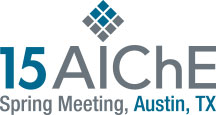

Compressor startup plays an important role during a plant’s startup. It’s even more crucial in an LNG facility, due to the fact that compression and liquefaction are the key elements here. During compressor driver selection, two critical factors to consider are driver operability and reliability. Ensuring the adequacy of a selected driver requires a comprehensive evaluation of the torque requirements of the compressor. This paper illustrates a startup study carried out for an LNG facility consisting of two trains of LNG refrigerant compressors driven by gas turbines.
Dynamic simulation is a valuable tool that can be utilized to effectively predict both the transient operating conditions and the total torque requirements of a compressor train. A single model can be used to investigate a wide range of scenarios, including those that can impact the design and selection of a driver. The available turbine torque was obtained from the vendor and compared against the torque required by the compressor during different startup conditions like individual and combined settle out, where the settle out pressures are different. In the event of inadequate torque, an alternative startup procedure is evaluated.
Compressors are typically started with the recycle valves open with suction and discharge valves closed until the compressor reaches the governing speed. However if a compressor trips during normal operation, it may have to be restarted at higher settle out conditions. During this condition, the torque requirement for restart may exceed the capacity of the turbine. Due to inadequate torque, the compressor may not reach the desired speed and trip.
Transient data from these simulations can be used to verify the design and specifications of the turbine by comparing the total torque required for startup to the output capabilities of the driver. Additionally, they can be used to assess the adequacy of associated recycle valves, pipe sizing and layout, and permissible starting system pressures. The simulations can also help identify any potential design or operational issues that may arise. For instance, if the selected driver does not provide sufficient torque to restart from a given conditions, different strategies can be evaluated.
In this study, a dynamic simulation tool was employed to determine the startup torque required by these refrigeration compressors. The compressor torque was determined for different startup conditions. The resultant compressor torque was compared with the turbine torque. During the first compressor startup, the compressor needed more torque than the turbine could supply. This happened during combined settle out condition, when the settle out pressure was higher. It was suggested to reduce the suction pressure by depressuring the suction valve thereby reversing some process gas to the suction drum. Dynamic simulation facilitated in determining the suction pressure to be maintained in order to startup the compressor within the available turbine torque. Likewise during the second compressor startup, prepositioning of quench valves at different speeds were evaluated in order to avoid high discharge temperature trip of the compressor and start the compressor within the available turbine torque.
